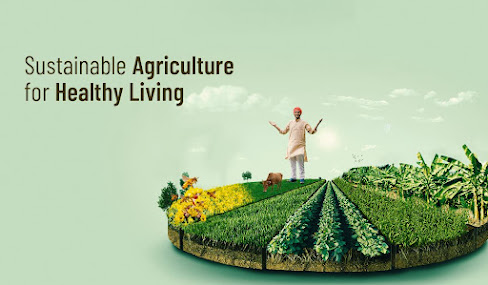Cultivating Change: The Rise of Sustainable Agriculture
Sustainable agriculture is really a holistic way of farming that aims to meet the needs of the current without compromising the ability of future generations to meet up their very own needs. It encompasses practices that promote environmental stewardship, economic viability, and social equity, ensuring the long-term health and resilience of agricultural systems. At its core, sustainable agriculture seeks to minimize the negative impacts of farming on the environment while maximizing the huge benefits for both farmers and society as a whole.
Among the key principles of sustainable agriculture is conservation and preservation of natural resources. This requires minimizing the utilization of synthetic inputs such as for instance chemical fertilizers and pesticides, which could degrade soil health, pollute waterways, and harm beneficial wildlife. Instead, sustainable farmers give attention to building healthy soils through practices like crop rotation, cover cropping, and composting, which improve soil structure, fertility, and biodiversity.
Another essential aspect of sustainable agriculture is promoting biodiversity and ecosystem health. By diversifying crops and incorporating native plants into agricultural landscapes, farmers can create habitats for beneficial insects, birds, and other wildlife, that really help control pests and pollinate crops. Additionally, sustainable farmers may implement agroforestry practices such as planting trees or hedgerows to provide shade, windbreaks, and habitat for wildlife while sequestering carbon and improving soil health Sustainable fashion .
As well as environmental benefits, sustainable agriculture also prioritizes social equity and economic viability. By fostering strong relationships between farmers, consumers, and local communities, sustainable agriculture can support vibrant rural economies and improve food access and security for all. This may involve direct marketing strategies such as for example farmers' markets, community-supported agriculture (CSA) programs, and farm-to-school initiatives, which connect consumers with locally grown food while providing farmers with fair charges for their products.
sustainable agriculture emphasizes resilience and adaptation to climate change and other environmental challenges. By implementing practices that enhance soil health and water management, such as for example conservation tillage, agroecology, and water-efficient irrigation systems, farmers can mitigate the impacts of droughts, floods, and other extreme weather events. Additionally, sustainable agriculture encourages the usage of renewable energy sources such as for example solar and wind power to reduce greenhouse gas emissions and dependence on fossil fuels.
Overall, sustainable agriculture provides a path forward for farming that is environmentally sound, socially just, and economically viable. By prioritizing conservation, biodiversity, and community resilience, sustainable agriculture can help address some of the very most pressing challenges facing our food systems today, from climate change and resource depletion to food insecurity and rural poverty. Through innovation, collaboration, and commitment to sustainability, we could build a more resilient and equitable food system that nourishes people and planet for generations to come.

.jpg)
Comments
Post a Comment